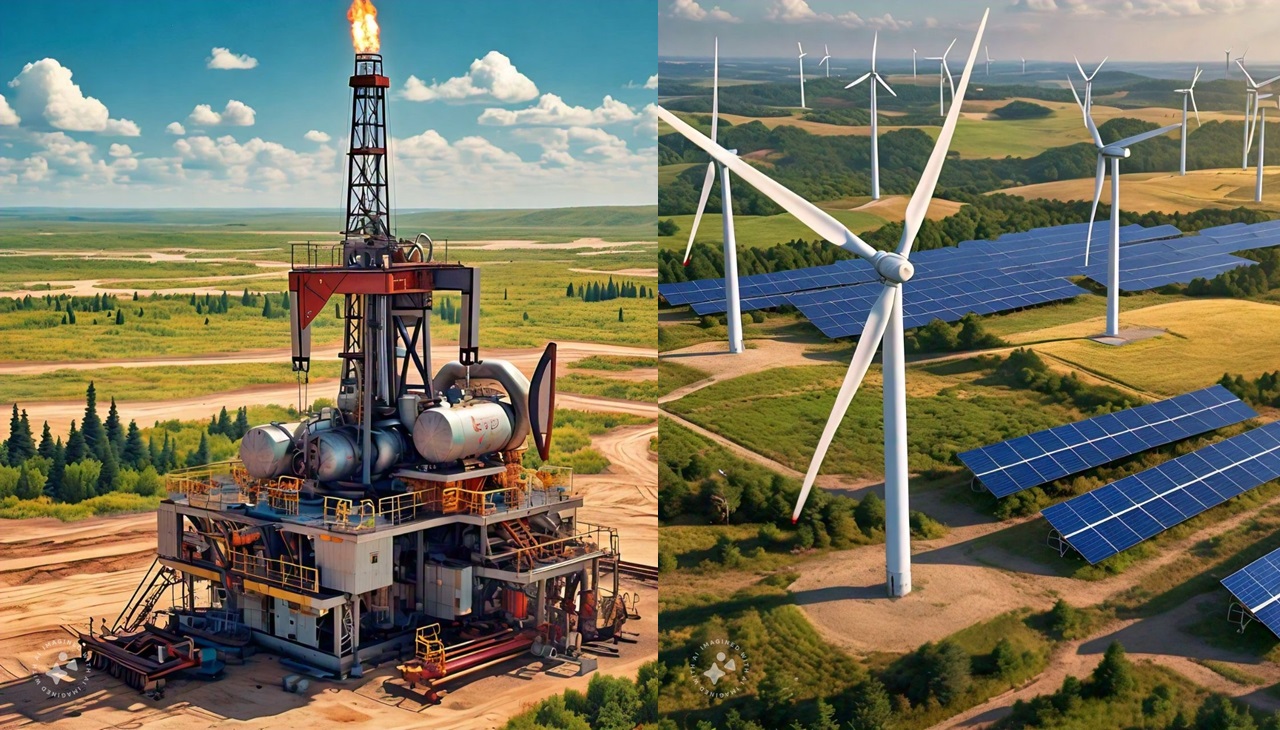
A future without oil for all?
OPEC says it is a fantasy to think of a world without hydrocarbons, while others consider it too late to go into the energy transition. Who is right?
Colombia is today in the middle of a debate: its largest company, Ecopetrol, which sold 143 trillion pesos (about US$35 billion) last year, has registered a historic drop in its stock market value. The firm's share went from US$19.5, its maximum in the last three years, to only U$9 in the last trading day on Friday.
This change came after JP Morgan downgraded Ecopetrol's rating for its guidance portfolio to “Underweight”. The reasons are clear: We are downgrading Ecopetrol to Underweight to account for the current challenging environment in Colombia. Such scenario is mainly driven by: (a) a cloudy geopolitical environment, marked by constant blockades and stoppages led by guerrilla groups; (b) pressured downstream margins, reflecting the company’s difficulty to raise fuel prices, especially in light of the recent truckers’ strike against price hikes; (c) a potential agency conflict, particularly considering the company’s refusal to join the Shale CrownRock assets; and (d) constrained production, impacted by the aforementioned stoppages. As a result, we are downgrading EC to Underweight and establishing a Dec-25 price target of $8.50/ADR. We see the company trading at 3.5x 2025 EV/EBITDA.”
The announcement surprised the company's management and critics lashed out against what they consider it is because of a completely wrong policy of Gustavo Petro's government regarding the country's energy future.
JP Morgan's arguments include the "CrownRock" case, a fracking project in the United States to which Ecopetrol said no, by presidential directive. Keeping President Petro's word not only violates all the criteria of good governance (the board of directors had already approved the project) but also signals a drastic path in terms of energy transition. The Colombian State Oil Company will say goodbye to the product that gives it its name since the Petro Government has said that the company must abandon oil exploitation and turn to alternative energies.
This has become a debate that generates many tensions and questions.
According to AFP Agency, the Organization of Petroleum Exporting Countries (OPEC) described the exit from fossil fuels as a "fantasy" and predicted that demand for crude oil will continue to grow until at least 2050, a symbolic date in the fight against climate change.
These statements were included in the oil cartel's annual report on the outlook for world oil demand. According to AFP, OPEC forecasts that crude oil demand will grow 17% between 2023 and 2050, from 102.2 million barrels per day (mbd) to 120.1 mbd.
This is what many of President Petro's critics find meaningless: why miss out on this business opportunity that will bring a great deal of foreign exchange to your country, because of a strictly ideological issue?
In his speech at the UN, Petro gave the coordinates of the discussion: "If we measure wealth in CO2 emitted and not in dollars, we have the answer: the richest 1% of humanity is responsible for the climate crisis that is advancing and is opposed to ending the world of oil and coal, because it is their own source of wealth. Politicians, including the presidents of the most powerful countries on earth, simply obey them.
OPEC also significantly revised its 2045 forecast upwards and now forecasts demand of 118.9 mbd, up from 116 mbd in its previous report.
"These forecasts underscore that the fantasy of phasing out oil and gas is not in line with reality," notes the Saudi Arabia-led organization, which is often critical of measures to accelerate the energy transition.
RELATED CONTENT
These forecasts seem to run counter to those of the International Energy Agency (IEA), which predicts a peak in demand for all fossil fuels (oil, gas and coal) this decade, after which it will decline due to the electric car and the push for clean energy.
Last year, the UN climate conference in Dubai (COP28) agreed to phase out fossil fuels and triple the capacity of renewables by 2030. The goal is to achieve carbon neutrality by 2050, following the recommendations of climate experts.
OPEC also forecasts that the combined demand for wind and solar energy will increase fivefold in the 2023-2050 period. Gas demand will also increase, to a lesser extent, and only coal demand will decrease, according to the cartel's forecasts.
The organization cites among the main factors fueling demand for oil and energy in general the increase in world population, which could rise from the current 8 billion to 9.7 billion by 2050.
By economic sector, "the strongest additional demand during the forecast period is expected in the petrochemical, trucking and aviation sectors," the report notes.
Despite the rise of electric cars, OPEC believes that thermal vehicles "should continue to dominate road transport".
The debate on the energy transition is still open: who is right, those who consider that planetary catastrophe is already inevitable or those who say that humanity can still take this step towards a more sustainable way of living.
WITH INFORMATION FROM AGENCIA AFP











LEAVE A COMMENT:
Join the discussion! Leave a comment.